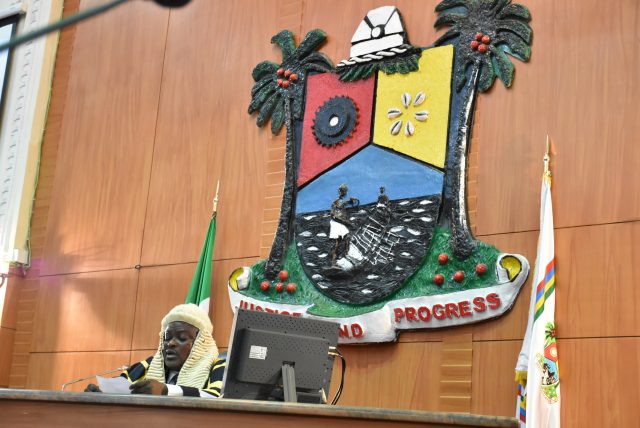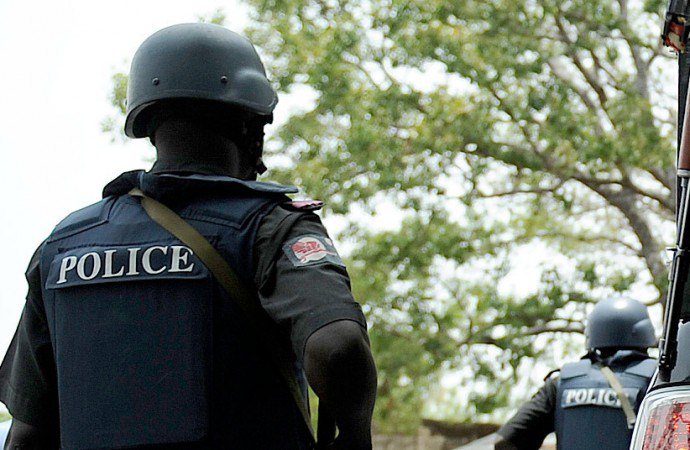A chieftain of the Peoples Democratic Party, Dele Momodu, has faulted the Economic and Financial Crimes Commission’s conduct in its attempt to prosecute the immediate past Governor of Kogi State, Yahaya Bello.
He said he had expected the anti-graft agency’s boss, Ola Olukoyede, to have learnt from the cases of his predecessors, who he said were “booted out ignominiously”.
Momodu, who spoke on his Instagram Live show, while responding to questions on the burning topic by viewers, also frowned at the issue of selective prosecution, saying “a situation where EFCC would have to be told who can be touched and who cannot be touched is unacceptable.”
He said, “When they brought in the new chairman, I thought oh, you will have the benefit of learning from your predecessors. All of them were booted out ignominiously and if I were in the shoes of the current chairman, what I will simply do is make sure I do my job as meticulously, as professionally, as efficiently as possible. And, you will never go wrong if you obey the rule of law.
“I watched the EFCC chairman, I think either last week or the week before the last, I was almost crying because the way he went on and on..if I don’t do this… spitting fire and all.. you don’t have to do media trial.”
When asked if EFCC was lying about the former Governor, he said, “I have no idea, I don’t work for EFCC but from all the things that I have read, a lot of them, they misfired. That is the honest truth. They misfired. They didn’t do their due diligence. When you said a man took out money and paid for his children’s school fees, just as he was about to leave power, and you go and check the documents and you see that these things started happening from 2021, 2022 (laughs); I am not an illiterate.
“How do you expect me to believe everything they said when they were too much in a hurry to prosecute him that they did not take their time to check the file. Once you allow a lacuna in law, everything will fall flat. “That is it. I am not one of those people who will say because I don’t like APC and because I supported Dino Melaye in the last election in Kogi State. Dino is my guy. But, I will not because of that be blinded by hatred for Yahaya Bello and say yes, he should go and surrender himself to EFCC when there is an existing injunction.
“And he is not the only governor who went to court and if the court has granted him that, so be it. We all know that our judiciary is not so perfect but you know, even at that, law is law, it must be obeyed. If we disobey the rule of law, then, we will have to obey the rule of the jungle. So, I never said that they are lying, it is their own statement that shows that they didn’t do their due diligence.”
Momodu, a PDP presidential aspirant, advised President Bola Tinubu not to allow people mislead him into disregarding the rule of law, saying those people would not be there for him tomorrow.
“My advice to President Tinubu is, don’t listen to all these people who will run away when tomorrow comes. Just follow the rule of law. I am appealing, obey the rule of law…. A situation where the EFCC will have to be told who can be touched, who cannot be touched; It is unacceptable. It is unacceptable! And that is why a lot of people have given up. You can see that a lot of serious people are not even interested in whatever they are doing to Yahaya Bello. A lot of people are not interested because they have felt all the gra gra before, it is nothing new,” he stated.
The veteran journalist added that there were a lot of criminals in the system to prosecute but a situation where the agency was getting personal on just one person was uncalled for.
“Nigerians should stop wasting time. There are a lot of criminals in our system to prosecute but when the chairman who should take the people to court comes and say to one person, ‘if I don’t prosecute you to conclusion, I will resign’, that is getting personal. You don’t need all that,” he pointed out.
He disclosed that one of his favourite books while growing up was The Rights of Man by Thomas Paine and that it had influenced him so much that he would always defend the rights of everybody to fair hearing even if he had something against the person.
“I don’t hate anybody as a Christian. I don’t have anything against Yahaya Bello. If they like, they can choose to jail him for one million years, as long as you try him properly. This is my position, you can quote me on it,” he said.
Still on the issue of school fees, Momodu said, “I mean, I looked at the issue of school fees. Before I read, I was like how can somebody pay that kind of money? Then, when I read, it was something else I was seeing. They said he paid upfront just before he left government, and when I checked, that was not what happened. How can you try people before you will go and examine the fact?”
On if he had resigned from the PDP, he said, “If I resign, that means I am quiting. No, I am still a member of the PDP. I said it clearly after the election in 2022 during the PDP primary, they asked us, if you don’t get our ticket, are you going go jump ship? And, I said, I can’t, I won’t jump ship and I stand by that.”
Copied

 News6 years ago
News6 years ago
 Featured6 years ago
Featured6 years ago
 Boss Picks6 years ago
Boss Picks6 years ago
 Headline6 years ago
Headline6 years ago
 Headline6 years ago
Headline6 years ago
 Headline5 years ago
Headline5 years ago
 Headline6 years ago
Headline6 years ago
 Headline6 years ago
Headline6 years ago













